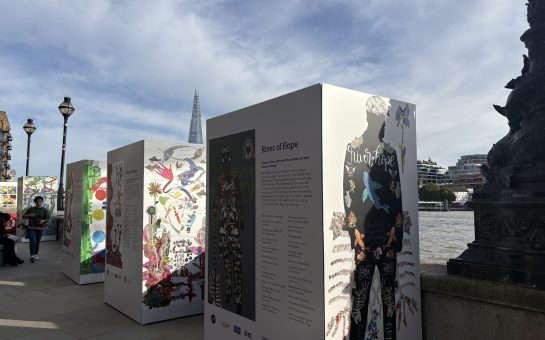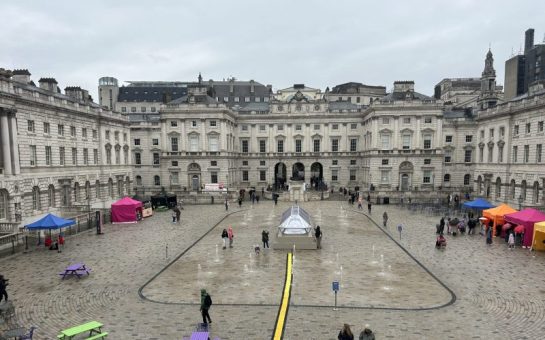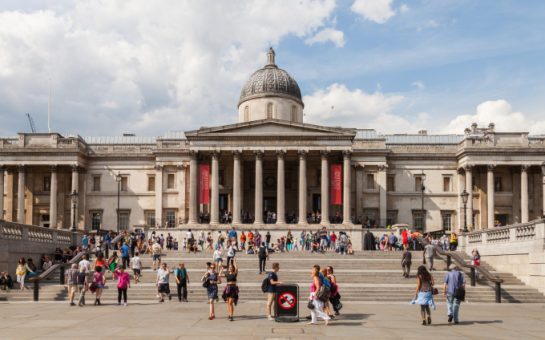Two SWL reporters review the popular festival on London’s South Bank.

By Emma Birkett and Nathan Blades
Emma:
Every year I try and venture down to London’s South Bank to attempt to see at least one of the films showing in the hugely popular British Film Institute’s 10-day Lesbian & Gay Film Festival. Although I am not gay myself, my film producer best friend is, and I’m interested in how the world at large is dealing with the sensitive topic of homosexuality.
The films appeal to me as they largely resist Hollywood glamour, and aren’t forced to cater to the masses. For the most part they are raw, personal films about repression, desire, love and the struggle for recognition.
As foreign films rarely make it into mainstream cinema and I find it refreshing to go and see something that I have absolutely no prior knowledge of.
The festival this year decided to categorise all the films into three sections – Hearts, Bodies & Minds. ‘Hearts’ features films about love, romance and friendship, ‘Bodies’ focuses on sex, identity and transformation and ‘Minds’ reflects on art, politics and community.
This year, I saw three films from the ‘Hearts’ section – Going South and Suddenly, Last Summer are two South Korean short films from director Leesong Hee-Il bundled together and Bwakaw, a longer Filipino film.
‘Going South’ tells a story of two young Korean men, Gi-Tae who is in the army and Jun-Young who has recently left. Although the story starts in medias res, the story is simple; Gi-Tae is searching for answers, both from Jun-Young and from himself, and goes to fairly extreme lengths to discover them.
Drugging his former lover, he takes him into the beautiful Korean wilderness and tries to understand his feelings, desires and past actions. The ending is ambiguous and abrupt, leaving you wanting to know more.
Suddenly, Last Summer is a film about recognising and crossing boundaries. The story centres on a schoolboy obsessed with his teacher after seeing him in a gay bar. The teacher tries desperately to remain detached, explaining the inappropriateness of this behaviour to deaf ears.
After escalating from stalking to blackmail, the pupil forces the teacher to resort to violence to get his message across. The film’s end is also ambiguous, leaving you unsure of the teacher’s true feelings. Light on dialogue, Suddenly, Last Summer uses music motifs and intimate cinematography to convey its messages and feelings.
Bwakaw is a black comedy on the trials of ageing and social alienation. Protagonist Rene is a grumpy 70-something living in the Philippines, who only acknowledged his sexuality in his late 60s. He thinks that the best days have passed him, and impatiently waits for death.
His best friends are his dog Bwakaw and ‘Mother’, another ageing gay man who works as a pimp and a hairdresser. The course of the film sees Rene make and alter his will about a dozen times, buy a coffin, bury friends, fall in love, get rejected and watch his beloved dog slowly die from an illness all while remaining stubbornly healthy.
Nathan:
I really admire the Film Festival for even existing, as over the top as it sounds. I have a strong (and sardonic) opinions on representation of LGBT characters in media, and that there’s overwhelming proof of queer existence in media is heart-warming.
It’s just a shame that all these films get relegated to a single chance to shine every year, when no doubt some of them could stand toe-to-toe with standard cinema releases. A Good Day to Die Hard doesn’t set the bar very high.
It also means that the audience for this different kind of cinema is limited to a self-congratulating clique. The only way to make an impact with politically-charged art is to make sure as many people can see it as possible. There’s no change if it’s not mainstream.
True, you’re not going to get the blandest of the lager-drinking, football-watching set to sit and watch Weekend – and I don’t recommend the more erotic items on the Film Festival listings being released anywhere other than DVD – but as long as people know that films like these exist and are readily available, that makes all the difference.
The film I managed to see, Out in the Dark, turned out to not be as avant garde as I had hoped. It runs a standard story of star-crossed lovers who have their love denied by tireless societal oppression. What made it feel fresh was the sub-theme of Israeli-Palestinian conflict, and it definitely adds a layer of grittiness to things; but it doesn’t stop the overall experience from being rather rote.
That’s not to say that the film was poorly made, or that stories about social oppression aren’t important; I’m just longing for more action and thriller themes to make their way into the queer media. Maybe next year.
Photo courtesy of chilcy, with thanks.
Follow us @SW_Londoner




